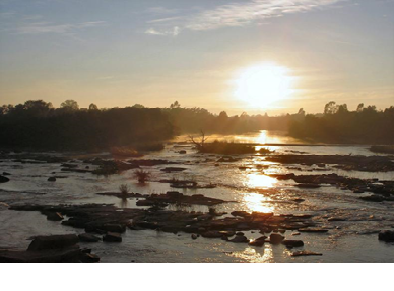The stakeholder and capacity needs analysis is to ensure that there is an increase in the participation of different players (from water using and impacting sectors at national, local and district level) in IWRM planning and implementation process and stakeholders are effectively involved in the management of the two basins. This exercise is to ensure stakeholders are organized, capacitated and empowered to be effectively involved in decision-making processes in the development and management of shared water resources in order to improve climate resilience, tackle poverty and ensure water resources are secure.
As part of this activity, GWP SA held a meeting on 15th November 2013, Bulawayo, Zimbabwe to undertake Stakeholder and Capacity needs analysis in the Limpopo Basin. The final reports will be shared with the LIMCOM Climate Change Task Team as well as the Technical Task Team who are leading the stakeholder engagement processes in each country.
Within the Orange-Senqu River Basin a number of initiatives have been carried out that have involved stakeholder engagement in planning process. Recently the development of the SAPs and the NAPs has involved a number of stakeholders in the identification of actions within the UNDP-GEF Development and Adoption of a Strategic Action Programme for Balancing Water Use and Sustainable Natural Resource Management in the Orange-Senqu River Basin.
ORASECOM has now initiated the development of a Basin-wide IWRM Plan – which will consolidate all existing information to develop a plan for water resources management in the basin. ORASECOM Technical Team members have also identified a broad range of stakeholders to be engaged in this process most of these are at the national level. Within the countries there is also need to engage local and district level stakeholders who will be key in managing the resources at the catchment level within the countries.
This intervention is targeting stakeholders from the grassroots institutions within the basin. Thus it will be targeted to District Councils/ Municipalities/ Catchment Management Agencies and Community Based Organisations. This composition will differ from country to country based on the needs and roles played by each sector/institution. The common denominator will be that all the targeted/ capacitated groups will be grassroots in nature and also not being the mainstream water institutions that are often targeted in similar capacity building initiatives.
Apart from broadening the stakeholder engagement in the two Basins – Limpopo and Orange – Senqu River Basin, closer engagement with stakeholders in the Basins is meant to raise the awareness on the River Basins; raise the awareness of transboundary water resources management amongst a broad range of stakeholders in the participating countries; and to introduce the concepts of IWRM to stakeholders in the basin as to enable them to engage better in the planning and implementation of transboundary water resources management; To undertake a Capacity Needs Assessment in order to identify capacity gaps and propose relevant trainings to be undertaken on different aspects of IWRM planning and implementation in the country, and to hold an awareness raising and capacity building workshops on river basin and transboundary water resources management issues.
In order to achieve the above stated objectives, GWPSA will engage the Country Water Partnerships (CWPs) to support the Stakeholder Engagement processes in the Basin, working closely with the Basin Secretariats such as LIMCOM.
The Basin Technical Task Teams will lead the delivery of the stakeholder engagement in their respective country. A Basin Consultant will be engaged and supported by the GWP’s Country Water Partnerships at Country level for engagement and organizing meetings.
After undertaking the stakeholder analysis and capacity needs assessment, the Basin Consultant will work with the capacity building institutions/ experts to undertake the training while the CWP will be deal with the logistics of the training workshops.
